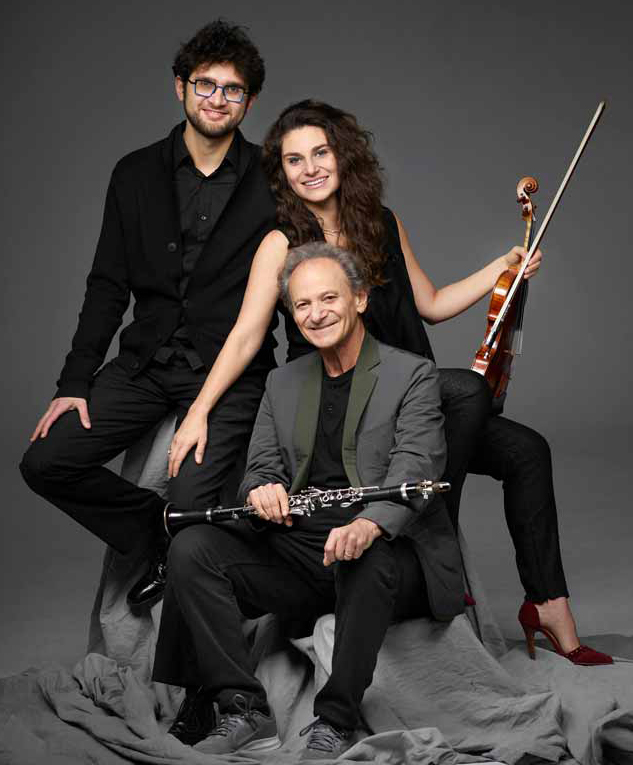by Daniel Hathaway

The joy of returning to live concerts was palpable, reinforced by co-artistic director Franklin Cohen — who warmly greeted attendees in the lobby beforehand — and captured in the words of performers in an almost giddily edited video by Erica Brenner that was shown right after intermission. Chez Cohen was once again bubbling over with the sounds of rehearsing musicians in the “Chamberhood” that the Festival has created over nine previous seasons. The audience showed its feelings in ardent ovations.
The evening’s first exquisite beginning was provided by Mozart, unwittingly in cahoots with Edvard Grieg, who added a second pair of hands to the Sonata in C, K. 545. That created a duo piano piece spiced up with textures and harmonies that expanded Mozart’s original beyond 18th-century styles without changing a note.
The superb keyboardists were co-artistic director Roman Rabinovich and Evren Ozel, who in his second season as a “Rising Star” has earned a permanent place in the ChamberFest firmament. Facing each other at twin Steinways, the two played as one, deftly coordinating pearly runs and expressive dynamic changes.
Another “Rising Star,” the impressive cellist Sterling Elliott, joined Ozel in a gripping performance of George Walker’s Cello Sonata, a mildly dissonant, rhythmically assertive work that establishes highly-profiled motives and uses them to create insistent dialogues between the players. It’s efficient and terse, leaves a strong impression, and makes you wonder why Walker’s music isn’t more frequently programmed.
Replacing Brook Speltz, who was sidelined by a positive COVID test, Elliott returned to join violinist Joseph Lin, violist Teng Li, and Rabinovich in a dramatic, all-systems-on-high-alert performance of Brahms’ Second Piano Quartet.
The pianist was clearly the animating factor throughout, and his colleagues responded to his leadership with precision, clarity, and a transparency that should set a new standard for Brahms performances.

He concludes by noting that the festival musicians are “essential” and “heroic,” bringing “visionary achievements by preeminent composers to visceral life, far from the Zoom-laden performances that dominated our existence for such an extended purgatory. We may not be out of the pandemic woods just yet, but institutions like ChamberFest provide bright signs that music will always inspire and strengthen us.”
Thursday’s opening event was an excellent argument for the absolute necessity of live music in our lives.
Published on ClevelandClassical.com June 17, 2022.
Click here for a printable copy of this article



